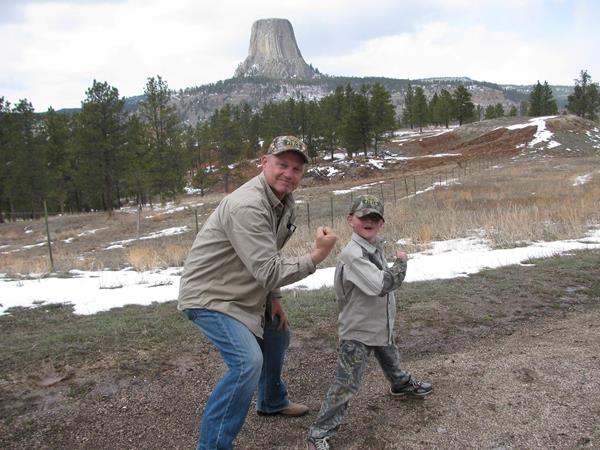 “For all who are led by the Spirit of God are sons of God. For you did not receive the spirit of slavery to fall back into fear, but you have received the Spirit of adoption as sons, by whom we cry, ‘Abba! Father!’” Romans 8:14-15 (ESV)
“For all who are led by the Spirit of God are sons of God. For you did not receive the spirit of slavery to fall back into fear, but you have received the Spirit of adoption as sons, by whom we cry, ‘Abba! Father!’” Romans 8:14-15 (ESV)
Fatherless boys are left to face Father’s Day as just another day.
By definition the term “father” refers to a male that produces a child, but in the eyes of a child, a father is a “dad” or “daddy.” So where most men can be “fathers” the title of “dad” has to be earned. It is earned by working hard in the lives of his children by being there whenever they need him, not only when and if it’s convenient to him.
Fatherlessness is a dangerous societal issue causing America to crumble at its core…we must face this ever-increasing epidemic happening right in front of us. 50% of our country’s children, over 25 million kids under the age of 18, are growing up in homes without their fathers.
These children will “celebrate” Father’s Day without their father being present in the home. For many of these children their father has packed up all his belongings and abandoned them without even a “goodbye.” Others never knew their fathers or experienced the tragic death of their fathers. Yet for all of them there are no birthday cards, no trips to exciting locations, no hugs, no affirmations, no words of advice during the crucial developmental times. They are fatherless.
Growing up in a single-parent household means that these children are more likely to live close or at the poverty line while their mother tries to make ends meet. While this situation is difficult for everyone in the family, growing up fatherless brings its own set of difficulties for boys.
Fatherless boys need to follow someone into manhood, but with their father gone, their options become limited. As they look for men to follow into manhood many of these boys will follow the wrong men so that 85% of them will end up adjudicated. The other 15% become the over achievers believing they can earn their father’s affection and return through accomplishments.
Yet all of these boys suffer from the same abandonment wound. This wound can’t be seen with the naked eye, but inside these boys struggle with personal worth/value and with the pain brought on by the unwillingness to forgive their father for abandoning them. They long for their father to return, even inventing a fantasy in which their father comes back. They envision their father, their hero, putting his arm around them and telling them how proud he is of him. The fantasy ends with the man staying and being the loving dad the boy so desperately desires. Unfortunately this tale is just fiction.
Fathers in the Field recognizes that only the Good News about our Heavenly Father’s love and salvation in Jesus Christ can heal a fatherless boy’s abandonment wound. Yet the Gospel message is often difficult for fatherless boys to hear and believe. They grow up hearing promises from men, only to have those promises broken or forgotten. Men will occasionally interject themselves into the boy’s life to give advice or counsel, but too often these result in the boy feeling like a project to be fixed. As they get older, fatherless boys become leery of the “good intentions” of men. They have learned to ask “Why are you really here? What do you really want? What’s the hook? Can you be trusted at your word?” As they get older they trust men less and less, often resulting in a poor view of all those in authority. If we want them to truly hear the Gospel it requires a man to commit to being consistent and intentional in the boy’s life.
As a ministry we ask men for a three year intentional mentoring commitment, helping them to recognize that it takes six months or more for a fatherless boy to trust that his Mentor Father is there for him. To trust that this man will honor his commitments to the boy, that he cares about him without expectation of return.
When a Mentor Father signs his commitment form at the start of the ministry, he is putting his commitment in writing. While this may seem like a small detail, for a fatherless boy this is a new type of commitment. As the man fulfills his commitment to walk intentionally through life with his Field Buddy, he is helping the boy learn what it means to have a relationship with his Heavenly Father.
Through experiences with his Mentor Father, a boy learns what it means to be a Christian man. He learns to take ownership when he fails, the value of serving others, the value found in all of life’s lessons, how to handle challenging situations, more about himself and most importantly how to forgive his earthly father.
 The Apostle Paul recognized that when he wrote to the Church in Rome that they were adopted sons of God, able to call Him “Abba” or “Daddy.” God’s immense love for us is clearly demonstrated in the sacrifice of His Son for our salvation and adoption. He has earned the title of Daddy and then demonstrates how earthly fathers can earn the title as well. For the millions of boys who have to spend Father’s Day without an earthly daddy, they can spend it with their Heavenly Daddy. Without churches and men stepping up to share this truth, fatherless boys will be forced to continue to treat Father’s Day like any other day.
The Apostle Paul recognized that when he wrote to the Church in Rome that they were adopted sons of God, able to call Him “Abba” or “Daddy.” God’s immense love for us is clearly demonstrated in the sacrifice of His Son for our salvation and adoption. He has earned the title of Daddy and then demonstrates how earthly fathers can earn the title as well. For the millions of boys who have to spend Father’s Day without an earthly daddy, they can spend it with their Heavenly Daddy. Without churches and men stepping up to share this truth, fatherless boys will be forced to continue to treat Father’s Day like any other day.
Every boy needs a father figure, a man to lead him into adulthood. Conversely most successful men leave a legacy and lessons behind, imbedded in the lives of the people they invested in.
Where will your legacy be found? Will the lessons you taught about life and our Heavenly Father be found generations from now in the children, grand children and great-grand children of a fatherless boy?

